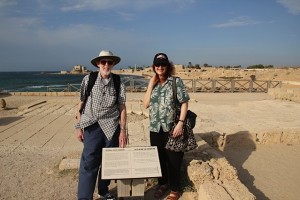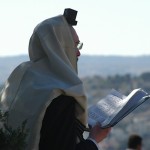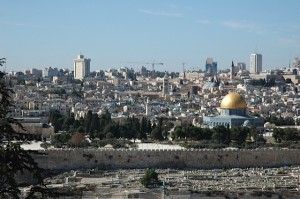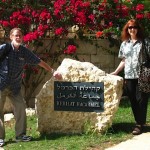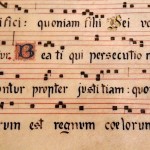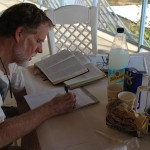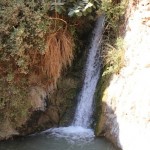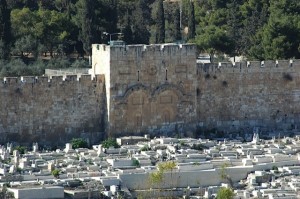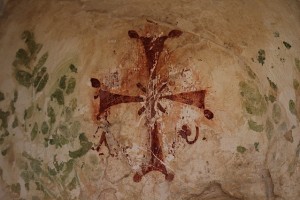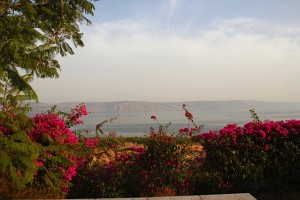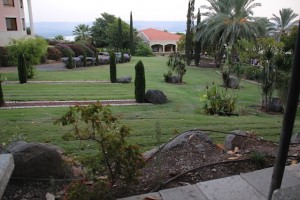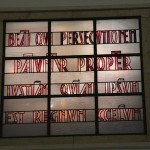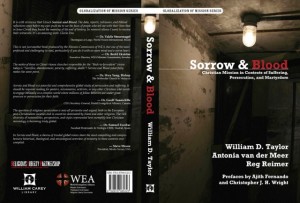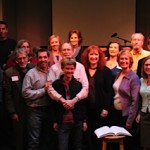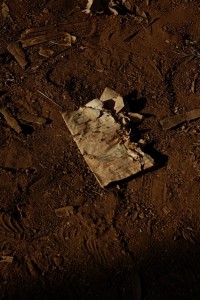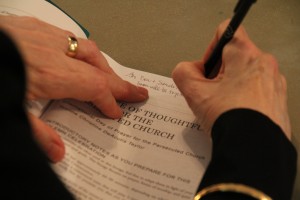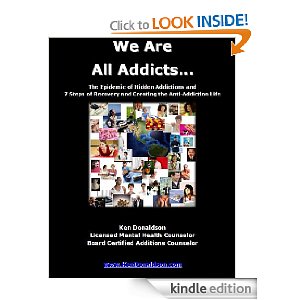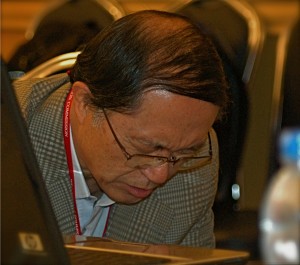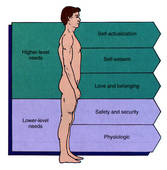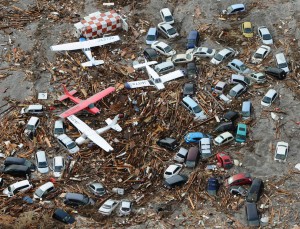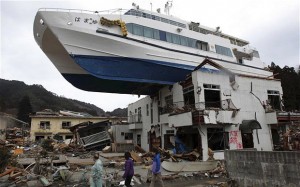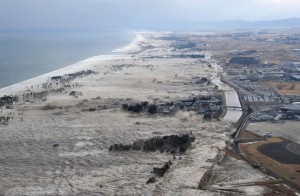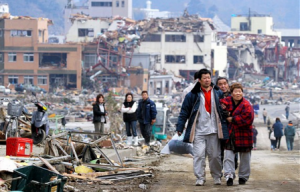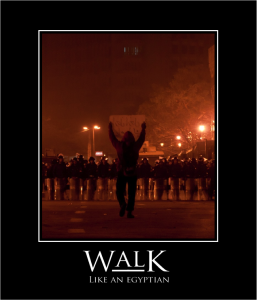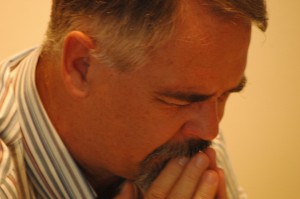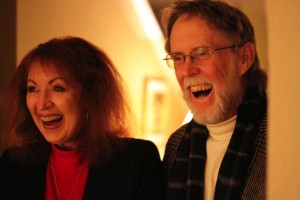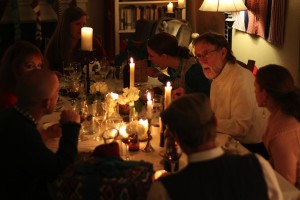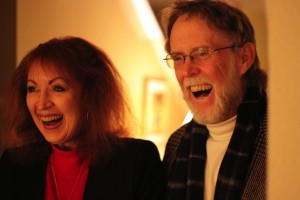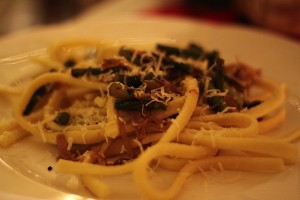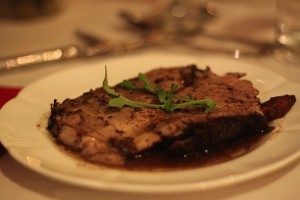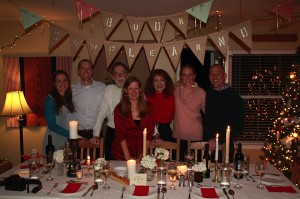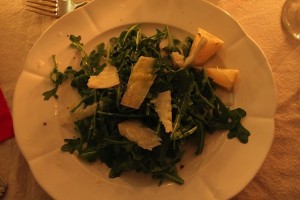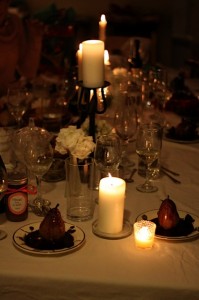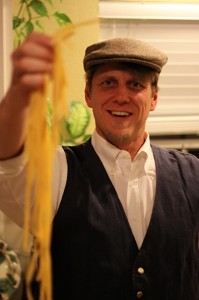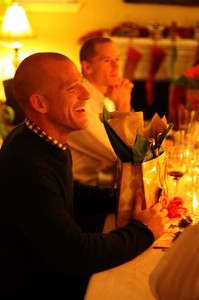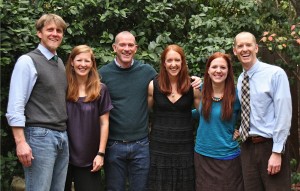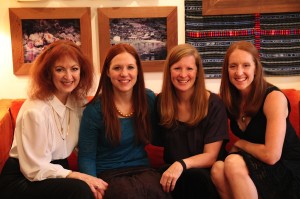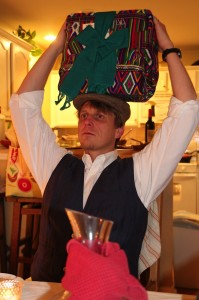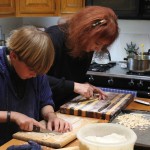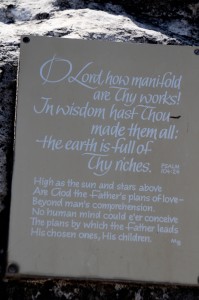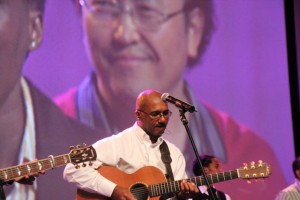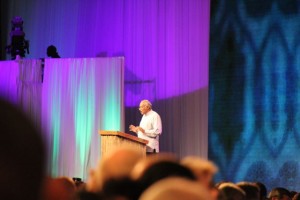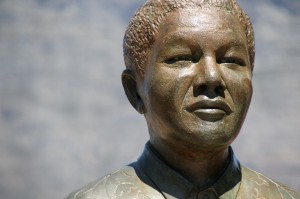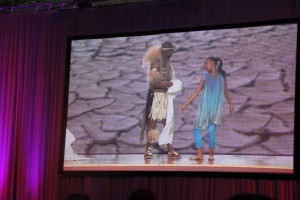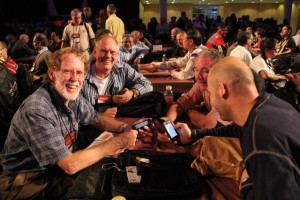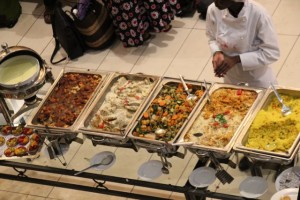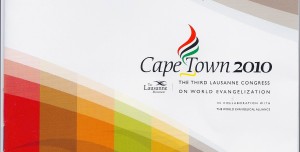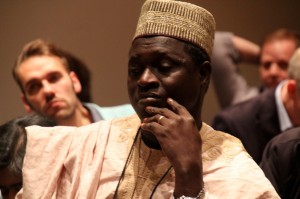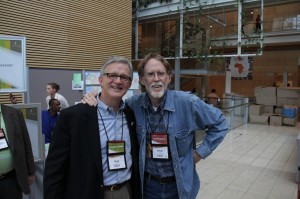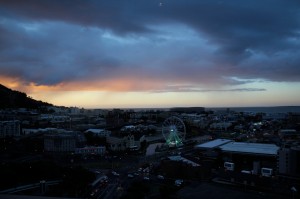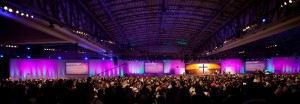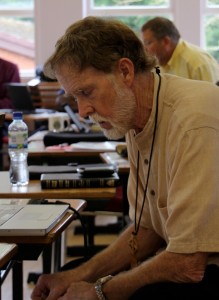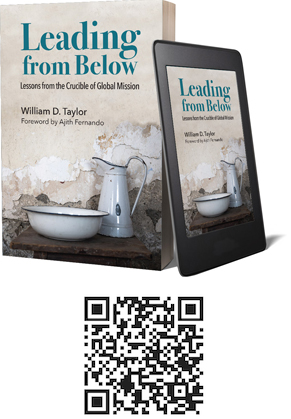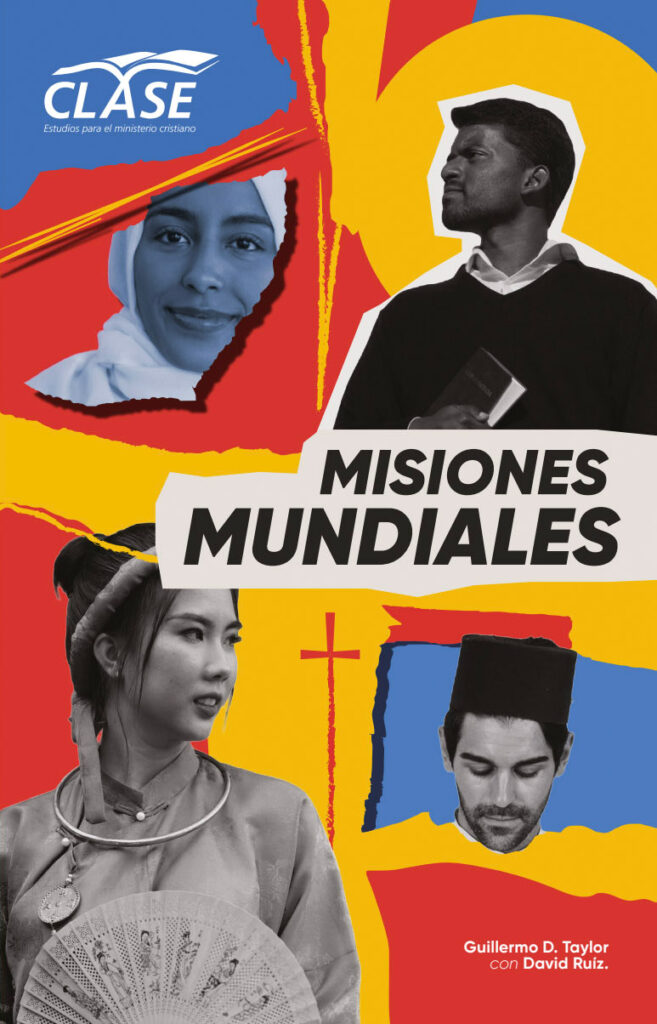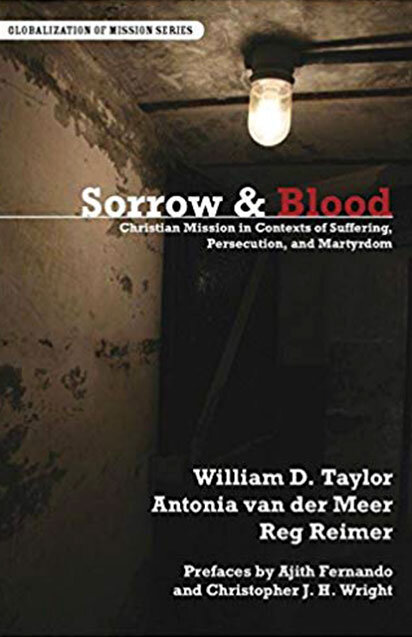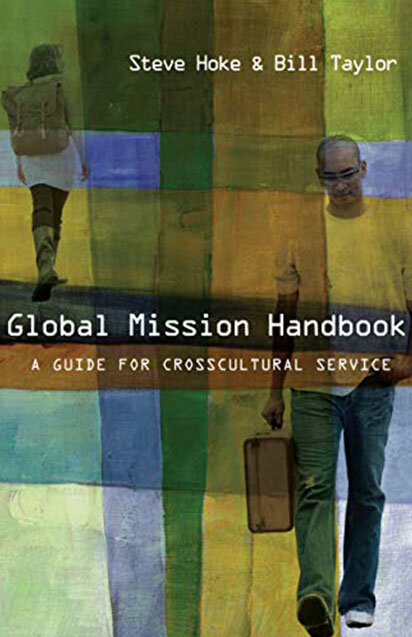December 18, 2012
We have now returned from the 5-week Israel sabbatical with very full heart and mind. The purpose of this intentional pilgrimage was double: for Yvonne, to grow in her calling as an informed intercessor; for me it was to work on the new book on persecution—shaped primarily for the North America world, but with application and possible adaptation to a broader audience.
God met us beyond expectations and with unexpected ones. The itinerary, arriving October 16 and returning November 19, found us based in these four regions—geographic points: Haifa and area (NW Israel and Mediterranean): 5 days; Galilee area (north): 10 days; Jerusalem and beyond (central): 16 days; Tel Aviv (west central Mediterranean): 5 days.
Instead of walking the geographical path, let me start these thoughts with some of our general impressions.
First, we thank God and our Israel-based friends-colleagues for investing in us, allowing us to talk with them in depth, listening and learning from them. Long-term cross-cultural workers (names withheld for security reasons) in Israel speak honestly about the high challenges and price paid (spiritual, emotional, physical) for extended service in that epicenter of God’s actions and spiritual conflict. We have the highest respect for them. This experience brings new and expanded insight as we read news and pray.
Second, Israel is an incredibly complex, layered piece of culture and geography, ethnicities and faiths, with many conflicting “narratives”: Jewish, Christian and Muslim ones; Jewish and Arab ones; ancient Christian communities versus Evangelicals; the Messianic believers viz a viz Arab brothers and sisters.
We worshiped with diverse congregations: Arab Anglicans at Christ Church, Nazareth; Messianic and expatriate believers at Christ Church Jerusalem; Messianic congregations in Jerusalem and Tel Aviv.
We were challenged, encouraged, stretched, leaving with the deep conviction that the triune God’s purposes will not be thwarted at the End. We were driven to God, his Word, and asking the Spirit to guide us as we listened to the narratives.
Third, for me the writing expectations were revised early on during our 10 days in the Galilee region.
Our friend B, who with his wife, L, extended such hospitality and time to us, early on gave me a key guiding piece of insight: “Bill, this will be more a time to collect material, gather impressions and study, but not write.” He was spot on, though there were a couple of writing “download” gifts: one on the Mount of Beatitudes and one in the quiet garden of Christ Church, Jerusalem.
My file folder came back full, my Bible marked with key passages from both prophets and NT on the themes of suffering and persecution, and on the countless mentions of place, people and times.
Now come incubation, structure and writing.
in future postings I will suggest further impressions and lessons. We are so thankful to God for supporters who years ago (2006) funded this memorable but delayed sabbatical.
Meanwhile…………………….we pray earnestly and with new understanding for the believers—Jewish, Arab, ex-pat—in Israel as they live and serve in the midst of constant temporal and spiritual kingdom warrings and clashings…….just as in the days of Jeshua’s First Advent.
May this be for each of us a very significant Advent-Christmas as we prepare, reflect, celebrate.
October 25, 2012
I sit this morning, gazing over the Sea of Galilee after a healthy Israeli breakfast, trying to key these thoughts into the computer and ultimately revive the Blog. Yvonne and I are the Holy Land to celebrate our 45th Anniversary and for a five-week sabbatical—writing for me and intercession for her. We are doing this trip on our own, with a rented car, guide books, the counsel of friends on the ground, and with flexible time to visit, stay, probe, reflect, and then depart from the countless sites.
My mind slips back to yesterday afternoon as Yvonne and I sat on the traditional site where our Lord gave the Sermon on the Mount. It’s really a challenge to dig down through 2000 years of history and layers of sand, rocks, rubble, and very complex political and religious political issues-narratives in order to arrive approximately to where things really happened. But on the Galilean hills just west from ancient Capernaum and up from the Sea, this is not hard to do; so many of them are still as dry, rocky and sparsely covered as in the days of Jesus.
And there we sat in those lush gardens, blocking out the herds of tourists from India, Russia, Thailand, USA, Germany, Slovakia and Japan. Late afternoon arrived, the shadows lengthened, the tourist-pilgrims faded into their mega buses, and both our setting and time quieted down. Our imagination was released to travel back, to re-read Scripture, to re-visit the Sermon on the Mount, to focus on the Beatitudes, and for me the last two of the nine. Matthew 5:10-11.
Blessed are those who are persecuted for righteousness sake, for theirs is the kingdom of heaven.
Blessed are you when others revile you and persecute you and utter all kinds of evil against you falsely on my account. Rejoice and be glad, for your reward is great in heaven, for so they persecute the prophets who were before you.
Pause and reflect: two out of nine deal with persecution; the term “persecuted” used three times, and two other categories mentioned…”reviling” and “uttering all kinds of evil against you falsely on my account”.
All of this dovetails into the release of the magnificent new resource anthology, Sorrow and Blood: Christian Mission in Contexts of Suffering, Persecution and Martyrdom, (William Carey Library, 2012). It was my honor to lead the editorial team that included Dr. Tonica van der Meer, Brazilian mission leader and educator and shepherd of great experience, along with Reg Reimer, Canadian missionary veteran and global expert on religious liberty in Viet Nam. We worked on the book for five years but its conception goes back to the Iguassu Missiological Consultation of late 1999, when the MC leadership was called upon to address issues related to these themes.
So what I want to do in the next series of blogs is to progressively unveil the book and its themes, challenge us to ponder their implications. It would be great if each of you did get a copy of the book, and began thoughtfully working through it.
But here are some key questions I want to probe in this series of blogs. While the obvious sources and objects of persecution against Christians are clear in the Global South world (some 250 million believersare unable to fully practice their Christian faith due to the forces of opposition), let’s bring the themes home to the Global North. In what ways have the principalities and powers, the spiritual wickedness in high places, the seductive powers of Satan, the sweet-sour temptations ALREADY come to the Global North.
In what ways have these churches, their pastors, their children, youth and families been apparently inured from the rough edges of harassment and persecution to the point that they would vehemently say, “What? There’s no persecution here!!! We are free to practice or not to practice our faith. There’s no problem here.
Thus two final questions:
First, has Satan already won a massive first victory with this kind of denial?
Second, in how many of your churches has your pastor given a series of 2-4 messages on persecution in the West (Global North) and the cost of following the Cross, “persecuted for righteousness sake”?
This unique publication, Sorrow and Blood, emerges in the fullness of times as the editorial team grappled with challenging questions. Here were some of them:
- What do both Biblical record and church history teach us about these themes?
- What does our contemporary global experience say to us? What case studies will help?
- How do these themes apply to our servants in bi-vocational (tent-making) or Business as Mission service?
- How should we equip both the church and its leadership as well as the global mission movement in light of today’s growing harassment, persecution and martyrdom?
- Does persecution cause the church to grow or can it kill it?
- What will harassment and persecution look like as it grows in the Global North?
- How can this book serve pastors who begin to teach on persecution—present and future?
- How can we equip both the churches and our future cross-cultural servants to live in contexts where they will face persecution and possible martyrdom?
- Do our seminaries, Christian colleges and missionary training centers (whether in South or North) adequately prepare missionaries for this uncertain future?
- What do we learn for each other, and how can we pray for and serve each other? How do sisters and brothers in the Global South pray for those in the North, and vice versa?
It was a high point in my writing life when pastor Geno Hildebrant of our former church, Hope Chapel, invited me to speak there October 7 and dedicate the book, with a luncheon signing. What a delight that four other writers were there: Yvonne, Kyle Miller, Robin Harris (artistic editor) and Kelley Magill.
For more information on the book, go to http://www.sorrowandblood.com/index.html
If you might want to dialogue on these issues, there is space following. Try it!
And to all, a strong season of thoughtful reflection and provocative reading.
Ah, the double post script for you
The “free” bonus is a pdf copy of the table of contents of the book. Write to btaylorgc@gmail.com.
The “premium” bonus is the chance to purchase the book at a significant discount. http://missionbooks.org/williamcareylibrary/home.php
October 29, 2011
A last, but not final word on hidden addictions
Many things have happened since the previous musings on this nasty topic, and I want to finish off my reflections for now. Since the posting of April, a number of friends have added to the discussion. And a Google search today hit me with 8,440,000 places I could go to drive me crazy.
This pause also challenged me to gaze deeply into my own inner landscape to discern my own past and present hidden addictions. It is encouraging to see that the Spirit of God has given victory over some of the past. But others linger, and here are two.
I think I have an inordinate draw to world news—like I can’t get enough of it. My desire to stay on top of global events, to “read the times” has sucked me into too many international news sites. So I am fasting in this area.
Technology, even new stuff, has not really been a problem to me, but the iPhone presents some new challenges. So I purpose NOT to carry it into the bedroom. We have a land-line phone for that.
And the list of others, some more acceptable to the public and others hidden. You know what they are, for others and for you.
I fear that too many of my friends and colleagues are deeply bound by the hidden addiction of travel, even when they see the price their own family pays. This is distressing, and it reveals the power of the addiction. Take it from this elder: you WILL pay for this, some day, some how, and you will regret not having changed.
What can you do then?
I am convinced that every one of my world mission friends and colleagues would benefit from asking a trusted counselor-mentor to evaluate their travel schedule. Why is this that travel has such addictive power? Perhaps it’s because it gives us significance far from the mundane of our home, family and local life. Because it takes us out of the nitty-gritty stuff of parenting, fathering, husbanding. Because there is a kick to travel, especially the longer-term variety. Because travel, or being gone from home, for some of you has now become the “new normal” and being home the “ab-normal”. This simply reveals a pathology of the soul.
Years ago, when my elder daughter, Christine, was still in high school, I returned from one of my self-important trips, gave her a hug, but she simply asked, “When are you leaving again?” That comment stung me; I immediately went to my office, deeply disturbed; I took out the commitment calendar for the next year and began calling people, explaining that I would have to cancel my trips. I was honest with them and explained what was happening. It was gratifying that not a single church or mission leader criticized my decision; to the contrary, they affirmed it.
In that context, Yvonne and I began crafting a series of practical guidelines that would control acceptance of commitments that would take me away. Here they are, updated as of today.
Bill Taylor guidelines for travel and ministry commitments
1. Never accept an invitation until after two full days. Gove time for the invitation to germinate, to evaluate and listen to my peer mentors. If the invitation is related to TGC or the MC, I ask my Austin accountability team, Kyle and Brian to give wisdom.
2. Listen to Yvonne as my first-line accountability person who knows me deeply.
3. Listen to the Holy Spirit, gut-level, “rightness” of it. Be wary of some requests—test my motives and the temptation to accept an invitation. Let the invitation pass the “smell test”.
4. Consider responding with a “yes” but only if it:
4.1 Fits our commitment to the re-naming, calling and ministry platform TaylorGlobalConsult
4.2 Fits within the MC vision. It must clearly contribute to the advance of Christ’s kingdom.
4.3 Contributes to our financial support team and new financial streams
5. Determine the budget from the inviting organization for travel and honoraria.
6. Do not let my travel alone take me more than 20% of the nights per year and with a rare exception, no trip more than two weeks in length per year. If Yvonne travels with me, then the length of travel can be extended but only if she feels the trip has value-added to her.
7. Watch my health. I must decline invitations that exhaust me “getting there” or cause sickness once there. My medical doctor has a list of off-limit nations for me. Never make a back-to-back international trip without at least 10 days of down time in between. Recovery from jet lag now takes twice as long.
8. When I return from an extended trip, realize that I rightfully have “time off” at home to be totally present to Yvonne and home, as well as “down time” to recuperate from travel. Do not shy away from days of rest, recreation and recuperation.
9. Try to avoid all travel in April (family birthdays) and December. I commit to be home for our anniversary (June 30) and Yvonne’s birthday (October 26).
10. If people want my services as a consultant, ask them travel to Austin. If I travel, they pay expenses and per diem expenses or an honorarium.
May God have mercy on us and forgive us. May we have the courage to name the beast of the hidden addictions and break the cycle before it is too late. Get accountable and stay accountable. Some of you just won’t change because the addiction is a bondage! But some of you will change, thanks be to God.
May 19, 2011
I am committed to finishing off the reflections on hidden addictions, so stay tuned. But recently I was baptized into a new technology, the “webinar”. I know about them; have seen them work; but have never done one. Thanks to David Mays of The Mission Exchange, on May 12 I presented an hour of visualized talk (with Power Point) and then about 20 minutes of Q&A. It was a great growth experience for me, and I already know some of the changes I would make for the future. Evaluations by the 65 or so participants were generally encouraging, but I must improve.
So thanks to Steve Moore and David Mays for encouraging me and opening up this door.
And this is what I presented, with a chance for others to order the webinar on line through TheMissionExchange.
May 12 – Candid Reflections on Missionary Attrition and Retention – Global Stories and Implications
Bill Taylor, Senior Mentor for the Mission Commission, World Evangelical Alliance
Aug 18 – Reset Dialog Feed-Forward Report
Steve Moore, President and CEO, The Mission Exchange
All webinars are 2:00 – 3:15 p.m. eastern time. See registration instructions below.
Candid Reflections on Missionary Attrition and Retention – Global Stories and Implications
In this webinar, Bill will take us on a visit to study the “topography” of missionary attrition and retention, sharing stories, key insights and outcomes of two international studies. He will elucidate some of key lessons and applications that will help mission-minded churches and agencies reduce attrition and increase retention. He will also suggest three print resources for your use.
Bill speaks on these issues coming from a combined data base of 45 years of personal ministry, countless case studies, and two major international research studies, ReMAP I (on missionary attrition) and ReMAP II (on retention).
At the end of the day our concern is not with theoretical issues that foster longer-term mission service. The key issue is that we are dealing with people’s lives, with families, with wives and husbands, with children of all ages. The primary concern is not the institution but the people.
Bill Taylor was born in Latin America and served there for 17 years in leadership development and church planting. He has been the Executive Director of the Missions Commission of the World Evangelical Alliance. He is now a Senior Mentor. He also coordinates its publications and co-leads its global missiology teams. His experience and training equip him uniquely with a global perspective, serving the worldwide mission movement in both Global North and South. Bill is founder and CEO of TaylorGlobalConsult, a new ministry that allows him to focus on mentoring, speaking, consulting, writing and teaching
Webinar Registration Instructions
• Log in at www.TheMissionExchange.org.
• If you do not already have one, create a profile by clicking the New Visitor Registration Link.
• Once you have completed your profile and received an e-mail confirmation; login using your e-mail address and password and proceed to the online store.
• Select the Webinar or Event by clicking on the title and follow the purchase process.
• If this is your first webinar click here for some additional information.

Of Lent, Resurrection Sunday and Hidden Addictions
April 20, 2011
I begin a series of shorter postings to the discussion of some issues regarding hidden addictions. It comes in the middle of Holy Week, our true High Week, where we slow life down, we come to the end of our long journey of Lent, where we walk with Christ in his inexorable path to the cross………and when we joyously celebrate the resurrection—a unique feature of our God, our Gospel, our Christ, our Faith System.
Later on we will read what some of my global colleagues have written on the subject, for their insight is strong and true. I will finish with some thoughts on one particular hidden addiction (and how to deal with it) travel.
I think it’s fitting to end lent with a final conversation (from my part) on hidden addictions, for they must be faced with courage and sorrow. True liberation can only come in resurrection power (which includes truth-telling by a loving and bold spouse or friend or colleague).
This discussion on hidden addictions started after I wrote in a previous blog of some changes that came from a re-naming of who I am and what I am to be-do in this next season of ministry. A trusted colleague and friend wrote me a few weeks ago:
Bill, you asked me about the danger of the hidden addictions, and I’m grateful at the thought that you would’ve noticed my passing comment in the earlier email, and would care to know what I was hinting at. Actually, it was intended to reveal more about me and my own recent journey from the privileged place of greater visibility and broader kingdom influence that I shared during my previous ministry season, into the privileged place of relative obscurity and “political irrelevance” in which I currently serve.
I’m certain that after a lifetime marked by numerous shifts, vocational roles and responsibilities, your family and the cloud of witnesses that are accompanying you into this new season of your life have prepared you well and spoken wise counsel into the less visible corners of your inner life where these “hidden addictions” can lay largely undetected and unchallenged. (I should be asking you for counsel and direction, so please…don’t hold back.)
Unless leaders practice a disciplined life in deep community with others, and pursue genuine accountability with a trusted band of brothers or sisters, its not likely that they’ll find themselves adequately prepared for some of the less noble urges and hungers that can manifest themselves when the machinery of our missional industry is no longer feeding them in the same way. My personal struggles with issues of identity, kingdom usefulness and significance are in large measure an indictment, a glaring reminder of the degree to which I’ve underestimated their importance and neglected those disciplines in recent years. Acknowledging this failure and facing some of these secret flaws more honestly and courageously in the last three years has been painful, but it is beginning to bear greater inner wholeness and a renewed sense of contentedness once again.
I think the specific comment in your previous email that triggered these reflections had something to do with the reduced international travel that you’re anticipating this year. I’ve found that adjusting to the travel restrictions and limitations of my current role have been particularly challenging. While I’m personally convinced that my passion for kingdom collaboration with God’s global people is an energizing dimension of my unique gifting and calling, and something that I need to continue to steward well, it can also harbor dangerous delusions of self-importance and addictions to the buzz of being perceived as a missional “player.” When that adrenaline rush is no longer being fueled to the same degree by our level of activity or perceived prominence among our peers, it can send the most highly proven leaders among us into a case of crippling spiritual and emotional bends.
Having our Father’s searchlight poking around those secret spaces in my inner life hasn’t been much fun, but it would be disingenuous of me to pretend that I haven’t needed it, nor that I’m ungrateful for it. By the way, our accountability group read a really good treatment of these themes last year: Robert Frylings’s The Leadership Ellipse: Shaping how we lead by who we are. It’s a shame that this book hasn’t yet gotten the recognition it deserves – its a very well written, rich contribution by the publisher of InterVarsity Press.
So here are some further insights that come from a discussion with some global colleagues:
1. The reality that hidden addictions exist, but since by definition they are “hidden”, they are not easily discerned, and thus they are much more difficult to deal with in ways that truly liberate and transform. It’s hard to know what really drives us. And frankly, I am skeptical that the heavily addicted ones will ever change. Why do I feel that way?
2. I have been thinking of the following hidden addictions that affect us in ministry:
a. Issues related to our identity in Christ. (Thanks to Rose for her keen words).
b. Exaggerated sense of our importance. (Thanks to Bob for his deep insights).
c. Travel, combined with the drive to escape from home and family responsibilities. Two sad stories I have heard from wives in the last three years. The first, “I am used to sleeping in my bed alone, and frankly, when he’s back the family is de-stabilized”. The second, “I have raised our adult children by myself.”
d. Technology. Do I really need my iPhone (Blackberry, etc) in the bedroom at night? No! Must I read email at red-light stop signs? No.
3. They are interwoven with our family system (a dark pool of secrets and not-understood stuff), plus the accumulation of small decisions we have made during our lives of ministry. These addiction are linked both to our calling and commitment to ministry but are dangerously entangled with a higher view than proper of our importance to God and his work on earth and in heaven.
We will not discern their presence in our lives unless we have someone in our lives who has the invited right and freedom to speak to us of the hard things that drive us. A spiritual director, true friend, courageous spouse may be able to do this; but if a person is not willing to listen, then even angels will have no impact.
Thank you for engaging with us, so please do comment below.
More soon…………

March 26, 2011 Creation groans, the nations rage, and Lent is our season—all March events. The groaning of creation…………..
A March shattering, the second one within one year, of Christchurch, New Zealand, with a higher level of destruction than the one last year. About a third of the beautiful centre city was demolished, and symbolically, the Anglican cathedral partially destroyed. Perhaps the only “happy” people were the seismologists, who discovered a brand new tectonic plate they did not know existed before.
Then we witnessed the Japan massive earthquakes (shifting parts of the nation by close to 4 meters, about 13 feet) followed by a horrendous tsunami (with waves up to 25 meters, about 53 feet), and the incalculable destruction.
How many times did you watch those mesmerizing videos? http://www.telegraph.co.uk/news/worldnews/asia/japan/japan-earthquake-and-tsunami-in/ And again, boston.com has a terribly powerful series of photographs, “The Big Picture” http://www.boston.com/bigpicture/2011/03/massive_earthquake_hits_japan.html The raging of the nations…………
North Africa, starting with a depressed and frustrated Tunisian fruit vendor who immolated himself, then the fall of one dictator; followed by the Egyptian Facebook Revolution of March 25 and beyond, leading to the expulsion of another strongman.
And the dominoes continue to collapse upon each other, though with deeply different reactions and outcomes. Now it’s Libya, Yemen, Syria, Bahrain. Some creative brain in the Pentagon dubbed the Libya mission “Operation Odyssey Dawn”. What muse suggested THAT name? Are not odysseys long periods of time, and we want rapid outcomes, the departure of another dictator and the installation of some kind of democracy? Democracy?
Huh!! So what else are we smoking these days?
In the mid 1970’s, one of our favorite and thoughtful writers, Joe T. Bayly, crafted a poem that was later put to music by concert pianist and Latin America missionary, Dick Foulkes. While the nuclear threat then was radically different—the Cuban missile crisis (So who was around to even remember those scary days?)—the Japan realities of even this morning are sobering.
Here it is, and consider the profound evocation of these words, even as we see how an “older” poem can return to revisit us with new insight. The hymn was written in 1976, entitled “Glenwood” (the cemetery where three of the Bayly sons were buried), and the music set to Saint Saen’s majestic symphony. Note the construction, with five presenting truths and conditions, the poignant query, the Lord’s response, and the believers hope.
“The nations rage, men’s hearts are failing ”
The nations rage, men’s hearts are failing For fear of death and war’s atomic blast;
All nature groans at sin prevailing, And longing hopes for day of sorrow past.
Lord, why this long and painful waiting, When will the promise be fulfilled?
”I am not willing one should perish.”
Even so come Jesus Christ, our Lord.
———–
The Shepherd, by His own rejected, Returns to call the sheep for whom He died,
The flock He fed and led and guarded, He gathers from all nations to His side.
But what of sheep who have no Shepherd, The tribes that have no word from Thee?
“Go tell them of the Seeking Saviour”
Even so come Jesus Christ, our Lord.
————–
The Lamb once slain to bear our sinning, Returns to earth, redemption to complete,
In tender love shall take us to Him, In awful wrath bring Satan to defeat.
We see the world in Satan’s bondage. The cities filled with sin and pain.
“Show my compassion for the lost ones.”
Even so come Jesus Christ, our Lord.
—————
The King descends, the sight is glorious, No humble coming as at Bethl’em’s inn;
Each eye shall see our God victorious Return to reign, triumphant over sin.
How long shall be our time of travail, Shall faith be found on earth at last? “
Walk holy in the dark’ning hours_____.”
Even so come Jesus Christ, our Lord.
————–
Then shall our God be vindicated, In flaming fire His vengeance surely take;
The faithful saints who long have waited To resurrection glory shall awake.
We look for Thee, O Loving Shepherd, We look for Thee, O Lamb of God.
We look for Thee, O King Eternal:
Even so come Jesus Christ, our Lord.
—————————
I posed this question to Yvonne this week: How many people died in the Irish potato famines of mid 19th Century?
The solemn report: “The Great Famine or the Great Hunger (Gaelic: An Gorta Mór or An Drochshaol), known more commonly outside of Ireland as the Irish Potato Famine, is the name given to the famine that occurred in Ireland between 1845 and 1849. The famine was due to the appearance of “the Blight” (also known as phytophthora)—the potato fungus that almost instantly destroyed the primary food source for the majority of the island’s population.
The immediate after-effects of the famine continued until 1851. Much is unrecorded, and various estimates suggest that between five hundred thousand and more than 1 million people died in the years 1846 to 1849 as a result of hunger or disease. Some 2 million refugees are attributed to the Great Hunger (estimates vary), and much the same number of people emigrated to Great Britain, the United States, Canada, and Australia.”
http://www.newworldencyclopedia.org/entry/Irish_Potato_Famine_(1845–1849)
So my second question to Yvonne: What would the world have done then had they had the Internet, Facebook or Twitter to report on Ireland?
Would we have tolerated that famine? Of course not. But nobody knew, beyond the Irish, and the British (fie on their foreign policy regarding Catholic Ireland!), and a few others. Who could have conceived the dimensions of that devastation? The sad ironies of history that forever the Irish national landscape and culture, leading to a 20% decline of the Irish population. So was it just famine, or perhaps genocide or something else? And where was the Internet? But today technology (blessing and curse) links us perhaps more than we want to.
The holy visitation of Lent, another March marker………
And in the midst of these earth-shaking events comes the liturgical calendar with its cadence. Lent started with the solemn ceremony of Ash Wednesday on March 9. It was my privilege to serve chalice that night, as two Austin congregations gathered, hosted by Hope Chapel (where we worshipped 11 years; the first ministry context for Christine and Cliff; the venue of David’s arts pastor ministry for 10 years) and Christ Church-Anglican, where we now worship and serve.
Sitting in the first row I heard the phrase repeated perhaps 150 times, “from dust you have come; to dust you shall return”. It mesmerized me. No! It struck me as a slap in the face when I was reminded so many times of the brevity of life, and the solemn truths in that phrase.
David’s blog has his rich and textured statement on Lent, and allow me to quote from it (by permission). I encourage you to read his full reflections for your own spiritual pilgrimage.
“THURSDAY, MARCH 10, 2011 Lenten Practices: Putting off the “elsewhere self”
This year I have a theme to my Lenten practices. I don’t think I’ve ever thought of my Lenten practices in thematic terms, but that’s what the Spirit seems to be prompting in me and the following quote captures the spirit of my desire to mentally de-clutter. This comes from Elisabeth Lasch-Quinn’s very fine essay, “From Inwardness to Intravidualism,” published in the recent Hedgehog Review. Tracing out the lines of thought in Dalton Conley’s incisive book, Elsewhere, U.S.A, she draws these observations:
“Recent socioeconomic trends have yielded a whole ‘new breed of person’ and a ‘new texture of everyday life’ (17-8)–a phenomenon he hopes to capture by employing ‘elsewhere’ as an adjective. The ‘elsewhere’ society is comprised of only the most ‘fleeting and one-dimensional’ social interactions, and the ‘elsewhere’ individual is in perpetual state of inner conflict, plagued by the uneasy feeling that no matter where one is, one is potentially missing out on something more important.
This new person is not so much an individual as an ‘intravidual’, someone with ‘multiple selves competing for attention within his/her own mind, just as, externally, she or he is bombarded by multiple stimuli simultaneously’ (7). Gone is the stable self with an ‘authentic inner core’–as in the phrase ‘finding oneself’. Instead of being guided by the imperatives of self-development in the old-fashioned sense, ‘intravidualism is an ethic of managing the myriad data streams, impulses, desires, and even consciousness that we experience in our heads as we navigate multiple words’ (7).
Like a fan at the sports game who, realizing she or he is on camera, cannot decide whether to enjoy the moment by looking at the screen or to perfect his or her image by looking at the camera, the ‘intravidual’ is uncertain and anxious, forever plagued by the road not taken. Caught up in the winds of multitasking, other fans cannot resist text messaging or talking on their cell phones, even though they have paid an exorbitant price for their seats.”
After reading this passage I put the journal down, because I needed to process her words. I felt an intense dissatisfaction with tendencies that I have observed in myself and both Conley and Lasch-Quinn had a name for it: the “elsewhere self.”
I have too much going on in my life. I have too many channels of data trying to squeeze themselves into my head. In consequence I feel that I’m losing two things: my moral ability to process the data wisely and a quiet, internal space in my soul. What I need is a re-calibration of internal appetites. I need to constrict the flow of external data so that there can be, as it were, an expansion of simplicity on the inside.
I don’t sleep well. I struggle to keep in my memory things that I am studying. I feel increasingly distractible. And with a baby on the way, I sense a need to do things that will strengthen my emotional capacity to be present to Phaedra and the baby rather than, well, be elsewhere.
All I have to say, in that light, is thank God for Lent. Lent is a beautiful season that not only reinforces bonds of kinship with Christians, it also offers us an excuse to reorganize the “spiritual life.””
http://artspastor.blogspot.com/2011/03/lenten-practices-putting-off-elsewhere.html
So I accept the challenge to deny, but also to engage. Together, on the journey, the long pilgrimage in the same direction, needing each other, walking not running in community.
Together.
Waiting for Resurrection Sunday.
“Even so, come Jesus Christ our Lord”.
February 17, 2011
“New creative endeavors from the Taylor II Family”
So I primarily quote from son, David, and post the art work.
“Dear friends,
After many months of hard travail, we are pleased to share with you an image of new work that occupies us currently. Being artists we figure that an image is worth (for now) a mound of sentences.
With affection from the three of us,
The Younger Taylors”
Yvonne and I rejoice with them. In the last two years I have found some fascinating research into the Taylor line. Until then, I thought we could trace the godly Taylor line only back some 9 generations to the first Taylor in the New World. But through a most remarkable “coincidence” I met an Amercan Dane, who came up to me after I spoke at a Houston church, and asked me about my Taylor lineage. Never did I dream that Gunnar Teilmann and I would be related, but he had the unbroken line back to a John Taylor, born 1327 in Homestall, Kent, England, and died in 1377. As best that takes us some 18 generations back in time.
But for us, the most significant one is Rowland Taylor, a parish pastor in England, married to non other than William Tyndale’s sister, Margaret. Tyndale, the great Bible translator, was burned at the stake by bloody Queen Mary. As was Roland Taylor, burned at the stake on February 5, 1554. We found his story in “Fox’s Book of Martyrs” and I found a Google book reproduction of an original copy of Fox.
So the birth of David and Phaedra’s child keeps that line going through the Taylor last name. We pray for a healthy child, either girl or boy, and thank God for his mercies to us all. But a 19th generation Taylor male!? Now that would be nice also.
And here is part of our joy that marvelous celebration night of January 2 when David and Phaedra revealed the news that now is real!!!
Blessed be God!
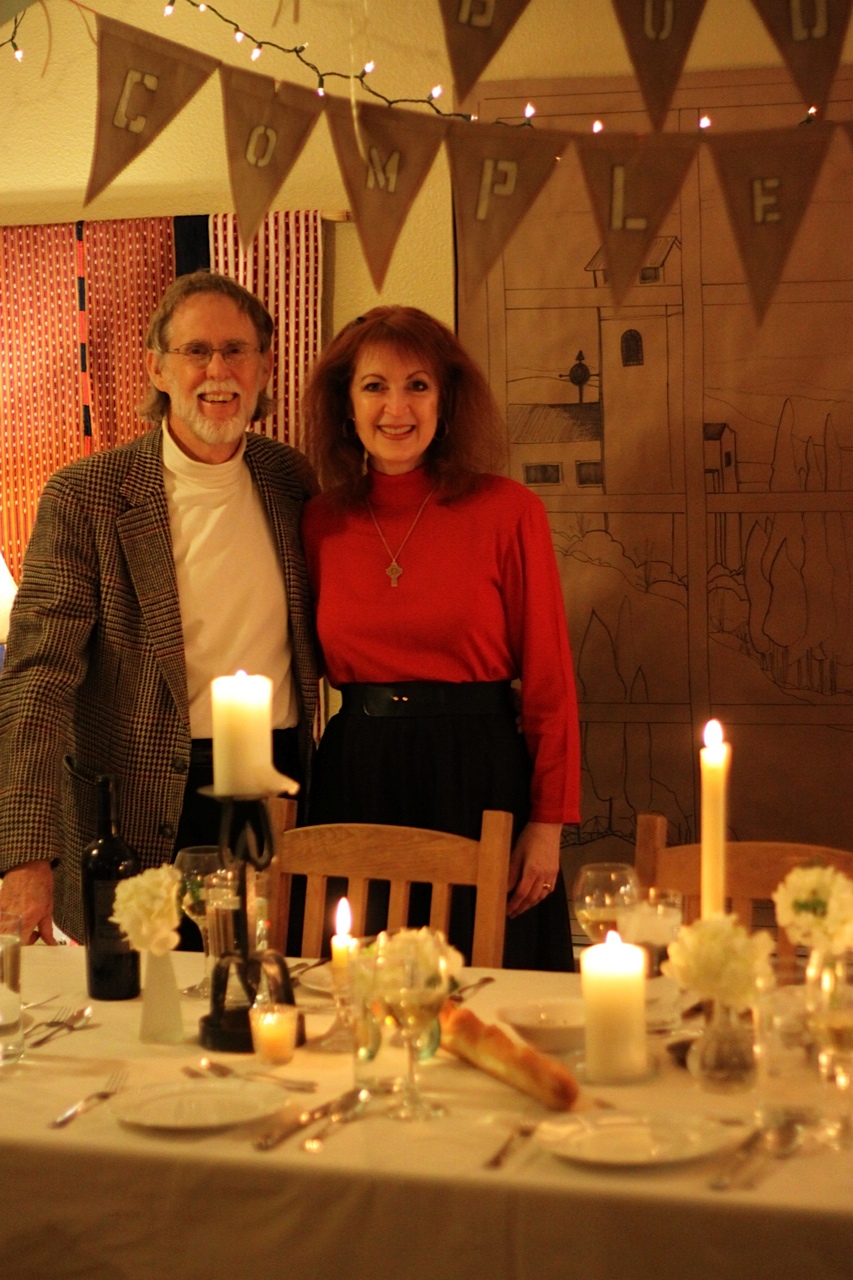
February 8, 2011
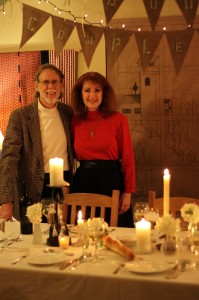
The Celebrated Ones--young as always!
Ah, time disappears on me and the exigencies of keeping a blog up to date are almost too much. So forgive the tardiness, but enjoy this feast of family, photos of the five-course Italian banquet that our adult kids lavished us with on January 2 (our traditional Adult Extended Family Gift Exchange) now combined with birthday celebrations. It was worth waiting from Yvonne’s 65th in October and my 70th in November.
And a few photos of the family groupings and grandchildren.
Perspectives as we conclude Advent (the “little lent”) and Celebrate Christmas midnight the 24th on.
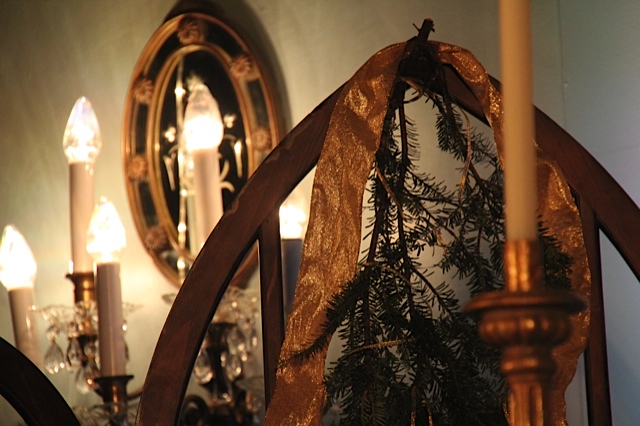

We have an Italian tradition, passed to Yvonne from her Italian nonna, Katarina DeAcutis (immigrant through Ellis Island in 1919), of struffuli making, and hence a few photos. Young Cormac Warner, 10 years old right now, has been endowed with the privilege of learning from his own Nonna.
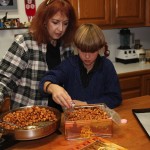 And then things move to family and food, more food and drink, then food and family, then family and gifts and family……….and food.
And then things move to family and food, more food and drink, then food and family, then family and gifts and family……….and food. 


December 24th eve worshipped at Christ Church-Anglican, where the palpable presence of the Spirit was felt. 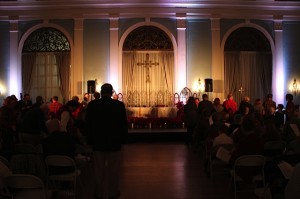

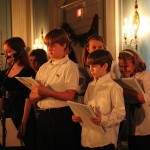
 The early service was a
The early service was a
Children’s Christmas pageant with some 50 children, but a drama loaded with heavy doctrine and magnificent music, all created by our folks.
The second one, starting at 8 PM, was a full concert with a local band that became part of the entire worship experience. The sermon was powerful, as were the worship and Eucharist.
We were delighted that some new friends came and found it enjoyable.
We now come close to concluding the last Days of Christmas, but then the great Epiphany starts. Our adult kids, the six of them, will take us out to a special dinner on January 2nd and we exchange our gifts then. On the evening of Epiphany, January 6th, we conclude our full Christmas celebration as we invite a group of friends over, each to bring a reading, a poem, a song, a musical instrument as we read and listen, sing and celebrate, then feast yet one more time.
Ah, such a glorious series of thoughtful celebrations that bring the year to a close and introduce the new one.
OK friends, I promise in the following posting to pick up on the birthdays Yvonne and I celebrated during October and November.
May the presence of the High Three be upon you, your families and your spiritual communities in our great High Season. Bill

December 10, 2010 Welcome to Part Three (final one) of the Lausanne III Cape Town 2010 Cascading Reflections Thanks to Rob Brynjolfson, who recommended these entries. You are a good man! http://www.brynjolfson.com/rbryn/. And my friend Paul Borthwick, who mentioned the blog, and another friend in Indonesia read Paul’s word and then went to the blog. Amazing wee world, eh? Steve Moore has some excellent insights and report on Lausanne III in his vblog, “Learning @ the Speed of Life”, http://www.themissionexchange.org/vlog.php
Now seven weeks later, these are my core take-homes from Lausanne III:
- Lausanne 2010 was convened by its leadership to mark the 100th anniversary of the historic Edinburgh mission gathering. It is one of three global events this year (Tokyo 2010, Edinburgh 2010 and Lausanne III). Global Evangelical leaders, thoughtful Christians with local to international arenas of ministry and spheres of influence gathered to grapple with core issues and contemporary challenges to our faith. I am sure that the Lausanne leadership wanted this to be a “kairos, agenda-setting” event for the 21st Century. But many respected colleagues doubt that it was, and only “chronos” time will reveal the long-term impact and fruit coming from Cape Town. We shall see what unfolds.
- The packed program attempted to deal with these core issues, with strong though uneven results. Unfortunately, the agenda was very large and too much was attempted, with uneven results. The strong presence of the arts (visual, worship, film, drama, dance) was a high redeeming factor for me. For me personally, the steady series of valuable, divine encounters redeemed and balanced out any program shortcomings. I return with stronger and new friends with shared passions. I also thank God for the countless espresso coffee stations all through the Cape Town magnificent convention centre.
- The long-term outcomes of Lausanne III depend on the way participants and their ministries return with the core issues clearly in mind to discern how they apply them to their local, national, regional or global ministry-sphere. But is it possible to identify the core issues? I was surprised that one of the major Christian magazines in the USA acted as if only a minor event had perhaps taken place somewhere in Africa. Bad call on their part. The jury is still out as to whether Christian leaders with no contact with Cape Town will be curious or interested in the discussion and outcomes. It was encouraging for me that in my first two weeks back home, two churches asked me to report on Lausanne III. Yet, other friends did not ask one question, and I tested them to see if they would ask.
- We wait to see whether the gifted and committed Evangelical voices from the Global South (very present in plenaries and all other main session) will move into leadership. But will they be heeded? Can we not expect both younger leaders and Global South leaders to speak from a different manuscript and sing from a different score? They would, if allowed, probably lead us in a different but needful direction. And certainly with a different congress budget and overall investment (when you consider what each participant paid for travel, lodging, registration).
It seems to me that if Lausanne III was intended to celebrate this global shift, then the leadership could have openly stated something like, “We live in new times, in a new world, with godly and gifted leadership in the global Church of Christ. We have listened to David Ruiz and Patrick Fund’s serious words. Therefore the Lausanne leadership team announces that it will not plan anything beyond Cape Town without substantial engagement with Global South leaders, selected by their own regions, teams and international ministries. We will spend time in prayer, listening to the Spirit and to each other. Only then will we attempt to establish an agenda, discuss viable structures, partner with established movements and networks, and together move into the future.”
Lausanne III was convened “in collaboration with World Evangelical Alliance”. Is that formal collaboration over now? I doubt it, but many wonder what shape this will take. There are other global networks already in place, with an established track record, and with gifted, experienced and competent leadership (the WEA Mission Commission is but one of them). I wonder how many of them have been invited into the future of the movement?
The same thing can be said of the “younger” leadership—at best a very fuzzy term, because in Lausanne categories, this appeared to be anybody under 50!
To put it another way. Cape Town was to celebrate this tectonic shift of the global church of Christ. Again, will the agenda now be determined, and the players named, by the majority world church? Will Lausanne leadership truly transfer responsibility and authority, or at least offer to serve in high collegiality? I wonder.
5. While the “Cape Town Commitment – A Declaration of Belief and a Call to Action” was excellent and the gifted team internationally representative, the process was very different from Lausanne 1974. The “Cape Town Commitment” was not open to direct input during the Congress. In 1974 we were given a number of times to input into the formulation of the Lausanne Covenant. Toward the end of the congress, a trusted colleague stated, having read a draft of the “Commitment”, that it could have been written long before October, 2010, as it was primarily an Evangelical affirmation of core convictions. I deeply appreciate Chris Wright’s hand in crafting the guiding first draft, with the emphasis on the narrative of God’s love and our response. We certainly moved far beyond factual declarations requiring mental assent. Part II emerges from the congress, and we await its release.
Will Lausanne III go down as an agenda-setter, a kairos moment? Only God knows. Did it give a ringing affirmation to some key issues that needed affirmation? Yes indeed. Do I engage the future stronger because I was present? Yes. Did Lausanne III shape me deeply? Don’t know. Will the two parts of the “Commitment” be studied? Yes. I have given an assignment to my January, 2011 class at Trinity School of Ministry to read and compare both documents from 1974 and 2010.
6. Let us thank God for what tangibly was experienced, accomplished and which aims for long-term impact. No gargantuan event like this will make everybody happy all of the time. At the end of the day I am grateful for the Lausanne generosity to me personally, and to the key Congress Team (the ones I know best: Doug, Lindsay, Blair, Hwa Yung, Rick, Ramez, Chris and others), for all your work. Interestingly, as of this writing, the web site still lists 17 names in the “Executive Leadership”: but only 5 are from the Global South. http://www.lausanne.org/about/executive-leadership.html
And now we move into the future as reflective practitioners.
It has been my honor to attend all three Lausanne Congresses (Lausanne 1974; Lausanne Manila, 1989; Lausanne Cape Town, 2010). Now as someone who desires to be empowered by the Spirit as an emerging sage, I have much to ponder, share and apply in the mentoring and writing, consulting and teaching worlds and arenas that God is opening up to me. With appreciation and gratitude to God for his mercies to me. To life! To family! To God! To His global community!
Bill–mentor and writer, teacher and emerging sage
Next: reflections on 135 years of life, Yvonne’s 65th and my 70th birthdays–a season of extended celebration begun the day I returned from South Africa.




